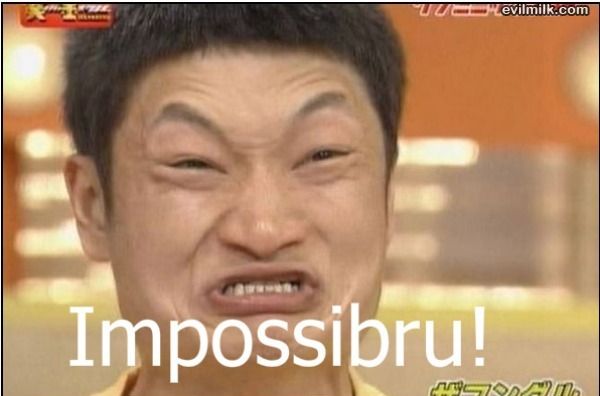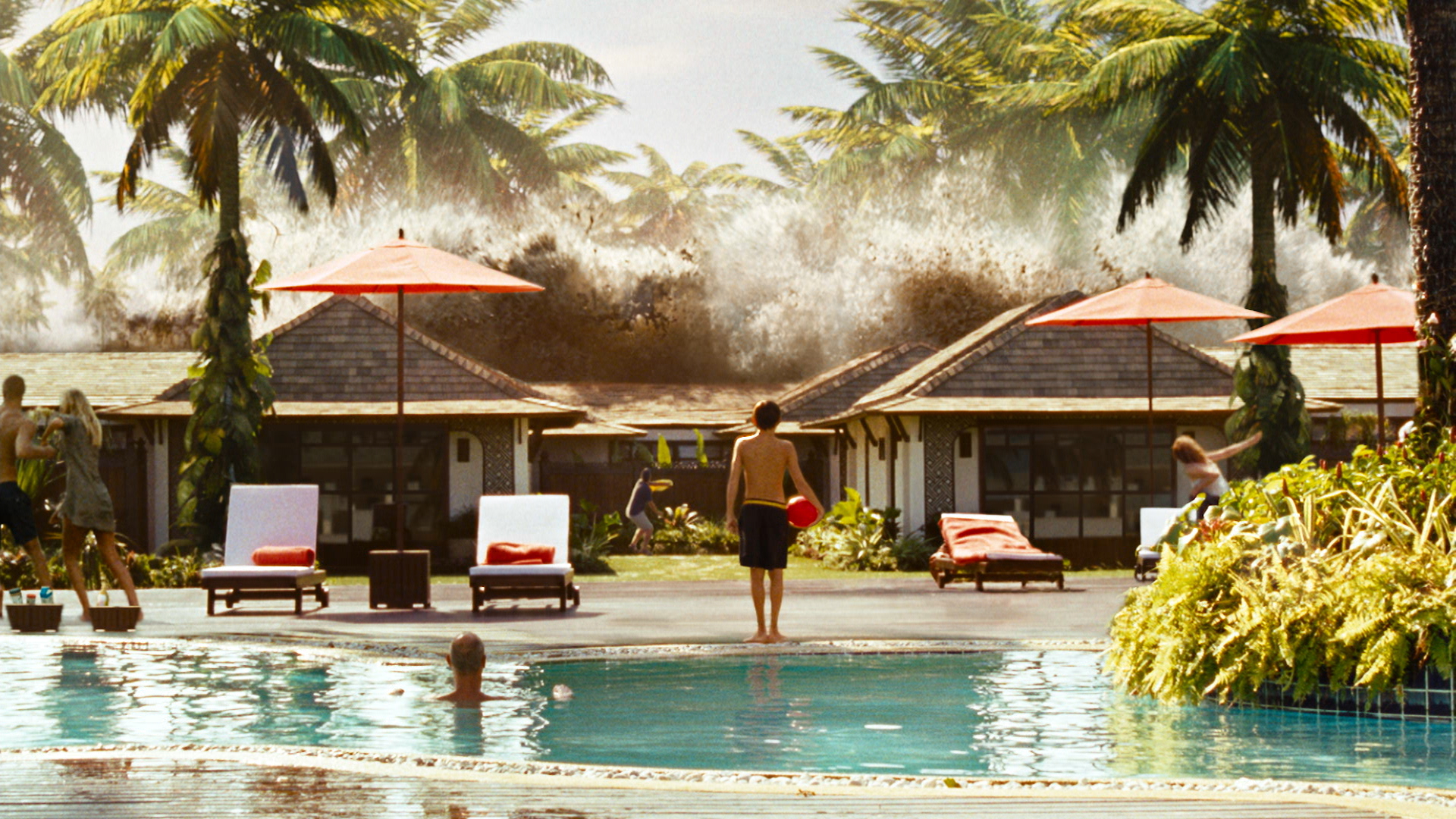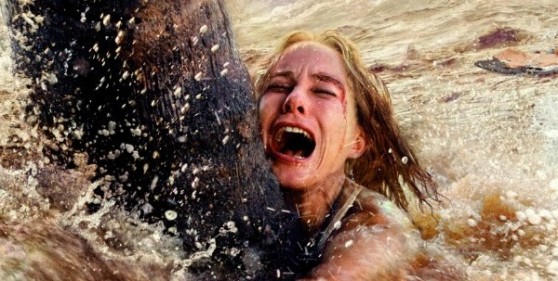Long Ass Film Gets Long Ass Review

SMART DUM FILMS
If you haven’t seen Django Unchained yet, here are three takeaways:
1)
It’s pretty good
2)
It’s very violent and is definitely not for the
squeamish
3)
It’s
long. At seven hours in length, it’s still four hours shorter than
Jackie Brown. Regardless, you’ll need buttocks of steel.
Django Unchained is
Quentin Tarantino’s latest film, and one of his best for a while. The titular
Django (Jamie Foxx) is a slave in the American Wild West who is freed and sets
out to become a gunslinging bounty hunter and rescue his lost wife.
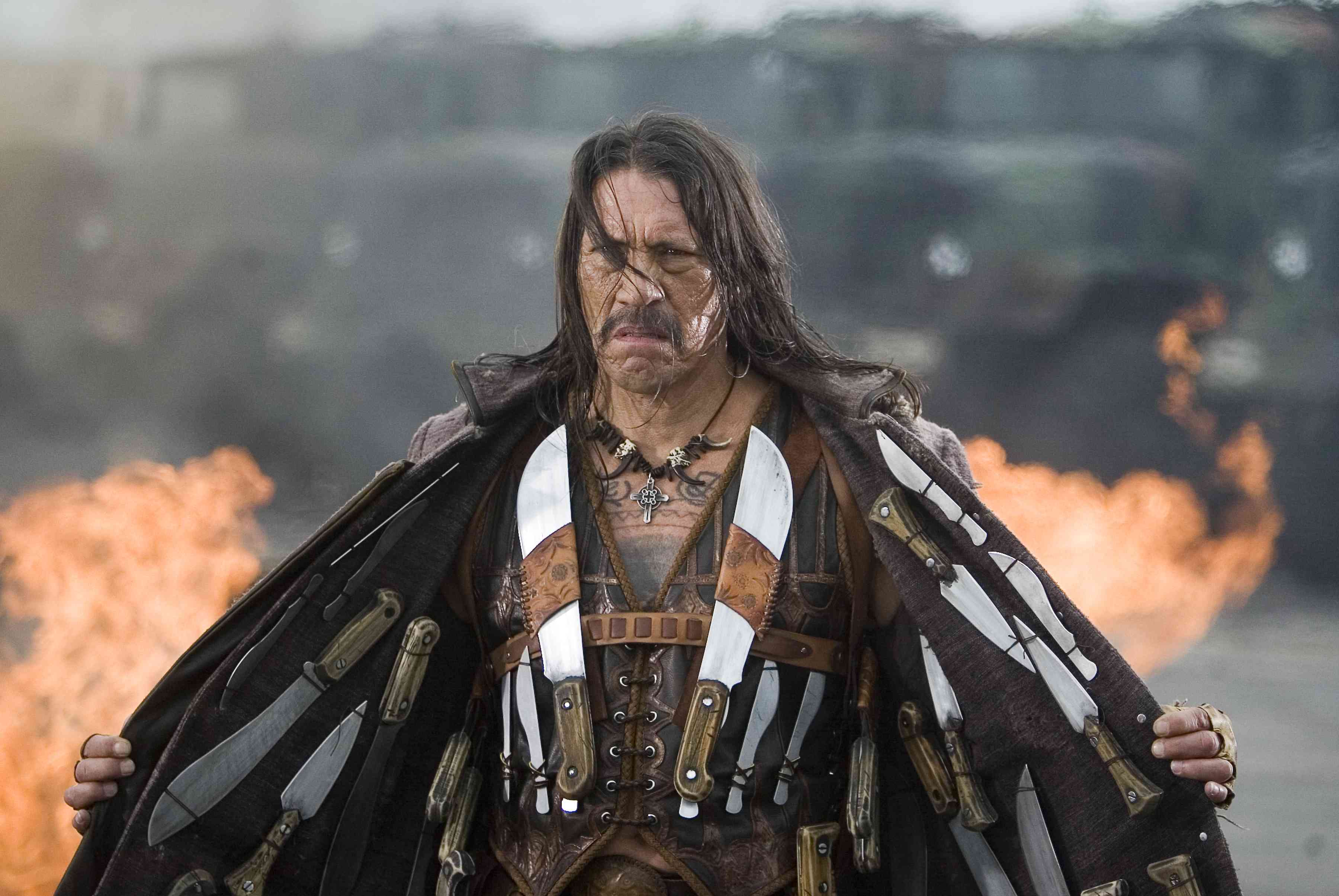

Ever since Verhoeven (and probably before that), filmmakers
have been wrapping ostensibly silly films around serious issues and concepts. The closest of these to Django Unchained is
probably Robert Rodriguez’ Machete. Both films feature an ethnic protagonist
confronting a racist side of America which is rarely seen in popular modern
cinema, as viewed through a lens of retro ‘70s ultraviolence. The differences
in the films make a decent reflection of the filmmakers themselves –Rodriguez
has always seemed a bit more comfortable in his own skin, a guy who has no real
issues making “Spy Kids” for his children. Tarantino is a lot more grandiose, but
also insecure in his fear of not being seen as a great director. So, Machete is
less ambitious, and lacks Django’s sprawl and ability to evoke emotion, but is
probably a little more consistent and fun.
INVERSIONS
Django Unchained is Tarantino’s second crack at a film
focused on African Americans, the first being the aforementioned Jackie Brown,
which felt like a young filmmaker’s attempt to test himself with a steady,
understated drama. Django is much more of an archetypical Tarantino flick -
quick, edgy, a whirlwind of influences, styles, dialogue and violence. For
better or worse, Tarantino has settled into his role as a remix artist of
popular culture.
Right from the beginning, he sets out to surprise. This
isn’t only accomplished through the characters, but through the music and even
the cinematography. The first fifteen minutes are in the sombre earth tones of
the western, complete with winkingly retro opening credits. After Django gains
his freedom, there’s a sudden burst of colour- he buys himself an outlandishly
garish blue suit, and the change is reflected in his surroundings as he rides
through a field of vibrant green to a pure white house. Not only is it
emphasizing the sense of release, but it makes the viewer realize how rarely
they see colours like this in a film like this. Likewise, the soundtrack throws
its own curveballs, when Country and Western unexpectedly gives way to Rick
Ross and Tupac.

The film is about race, and it’s with the characters and
their expected roles that it makes its biggest twists. Django, as mentioned by
others, is a black man who has taken on the mantle of two of the biggest white
heroic archetypes – the cowboy, and the Nordic hero Siegfried. Germans in
cinema are almost always Nazis (unless the film is from the 80s or 90s, in
which case they’re terrorists), but his mentor / friend Schultz (Christopher Waltz) is essentially the only non-bigoted
white and the primary articulator of the film’s arguments against slavery.
The villains are more subtle – DiCaprio’s Candie, a viciously brutal plantation owner, is
revealed over the course of the film to be almost entirely shaped by the black
men around him, from the slave who raised him, to his manservant, to his
manipulation by Django himself. Speaking of the manservant, Samuel L Jackson
has himself a whale of a time playing a black caricature inside and within a film of broad brush,
larger than life personalities. To give away more would ruin it, but he stands
out as the most interesting and complex figure of the movie.
VIOLENT
Subtext doesn’t necessarily make for a complicated film though,
and Django is pretty straightforward. It doesn’t really have anything to say
about the subtleties of race relations beyond “Slavery bad. Violence towards
slavers good.”
It is an extremely violent film, although something interesting is the two separate ways the violence is handled – when atrocities are being inflicted on the black slaves, there is generally little in the way of gore. Instead, the suffering is largely brought across through sounds – screams, cracks, grunts. What little blood there is is darker and more realistic than the bright corn syrup which spatters the rest of the film. These scenes can often be profoundly disturbing. Conversely, when Django is mowing down evil crackers, they don’t so much bleed as comically explode in cathartic fireworks of viscera.
It is an extremely violent film, although something interesting is the two separate ways the violence is handled – when atrocities are being inflicted on the black slaves, there is generally little in the way of gore. Instead, the suffering is largely brought across through sounds – screams, cracks, grunts. What little blood there is is darker and more realistic than the bright corn syrup which spatters the rest of the film. These scenes can often be profoundly disturbing. Conversely, when Django is mowing down evil crackers, they don’t so much bleed as comically explode in cathartic fireworks of viscera.

The Caucasian circulatory system is a strange and wondrous thing
It’s this ability to mix
and match which is inseparably Tarantino’s strength, and something which can
get a little irritating. He often attempts to crowbar in a too much in terms of
influence and tone into his films (“I saw this and it was super awesome so I
put it in my film! And this! And also this!”) just to prove that he can.
Django
is certainly a hell of a lot less annoying than the Kill Bill films in this
respect, but it can still feel uneven. A broad comic scene with a Klan lynch
mob is actually pretty funny, but sits ill with the rest of the film as a
whole. The third act drags and slows the film’s pace. The sheer length of the
movie of it allows Tarantino to indulge his love for vignettes, but pulls away
from the grindhouse sensibilities of being taut and economical. Want to make a
movie which is touching and touches on real life issues, which shows the
comical and the brutal sides of violence, which has slapstick and
characterization and drama? Well, you just can’t and maintain your focus.
RACIST
Is the film racist? No, of course it’s not. It violently
hammers home what is a clearly anti-racist message. What it in fact is, is tasteless. And that’s
ok. Doesn’t even make it a bad film. Lots of good and even great films have
been pretty tasteless.
Much of the brouhaha surrounding it came from Spike Lee’s
reactions to the film, where he described it as “disrespectful.” This, in
itself, is not surprising. Spike Lee and Quentin Tarantino have had a
well-publicised feud which goes back years, and it’s not even difficult to see
why. Tarantino does not exactly paint subtle portraits
when he makes his films, and he likes writing about black people. Spike Lee is
fairly sensitive when it comes to portrayals of blacks in modern media, and
largely with good reason. In addition,
there’s the issue of street cred, where Tarantino is a middle class white kid,
and Lee is not.
Still a pretty accurate summation of these two dudes over ten years later
More
than that, however, I would guess that the enmity between the two of them stems
from their similarities, rather than their differences. In the natural world,
the greatest threat comes from a species’ ecological niche being invaded, and
the same is true of people in their personal or professional lives. If someone just like
you gets introduced into your friendship group or workplace, you will almost
certainly find yourself fighting off an irrational surge of dislike (you’ll
probably also be incapable of recognising how similar they are to you).
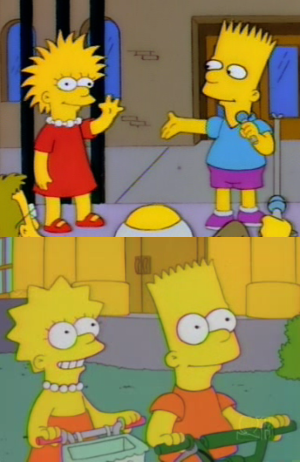
Fear your respective
Lesters and Elizas. They are out to get you.
We all have a couple of friends whose massive similarity to
each other has resulted in an everlasting enmity, and unintentionally comical
wars on Twitter and/or Facebook. Well, some of us do. Anyway, Tarantino and Lee were both relatively young, nerdy directors who write about crime and the street, who love dialogue and, yes, racist invective. Were they ever going to like each other?
Speaking of invective, the bulk of criticism is generally levelled at Tarantino’s
constant use of the “N” word in the film. Tarantino has defended this by
claiming that he’s just using it in the name of historical veracity. This argument of course falls down when people are using the word “fuck” and
other anachronistic swearwords in a film set in the mid 1800s. The fact is,
Tarantino is a nerd, and he obviously gets a lot of pleasure out of using
naughty words in front of lots of people like a bad ass. Tasteless, yes.
Racist, probably not.
 As a matter of fact, if there is an analogue for Tarantino
himself in the film, it is certainly Calvin Candie: the rich white boy who
makes the violence happen for his own amusement, an awkward geek trying to be
cool and cultured at the same time, and the only character who gets a rambling Dorkologue as is so
characteristic of Tarantino and his '90s contemporaries (notably Kevins
Williamson and Smith). Spike Lee doesn’t need to hate Tarantino. The guy made the most repulsive character in his film resemble himself more than a little bit.
As a matter of fact, if there is an analogue for Tarantino
himself in the film, it is certainly Calvin Candie: the rich white boy who
makes the violence happen for his own amusement, an awkward geek trying to be
cool and cultured at the same time, and the only character who gets a rambling Dorkologue as is so
characteristic of Tarantino and his '90s contemporaries (notably Kevins
Williamson and Smith). Spike Lee doesn’t need to hate Tarantino. The guy made the most repulsive character in his film resemble himself more than a little bit. There is, however, one group of people which will be be justifiably offended by one of the atrocities in the film. I am, of course, referring to Australians. Tarantino once again attempts to act in the film, and produces an Australian accent that has to go down in history alongside Kevin Costner's English or Christopher Lambert's Scottish (below) as one of cinema's worst.
